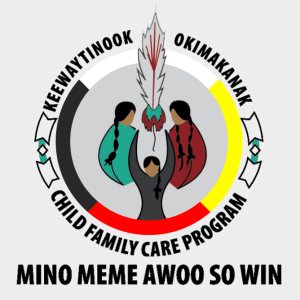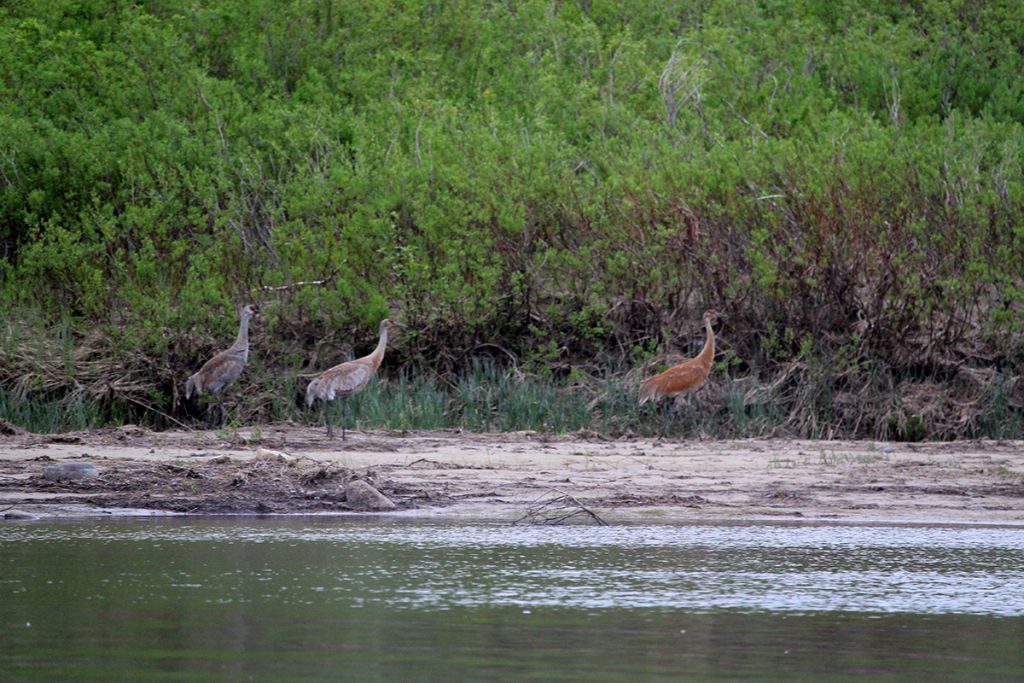Contact Info
Dryden Office
41 Duke Street
Dryden, Ontario
P8N 1E6
Ph: 1-800-387-3740 Ext 1020 or 1-807-735-1381 Ext 1020
Thunder Bay Office
Suite 105 – 100 Anemki Drive
Fort William First Nation, Ontario
P7E 1C9

Mino Meme Awoo So Win
ᒥᓄ ᒣᒣ ᐊᐔ ᓱ ᐎᐣ
Our Responsibilities
Keewaytinook Okimakanak’ s Child & Family Care Project Started in September 2022 with the submission of a 5-year proposal to initiate the development of a Child Law that would represent & prioritize KO’s own community values in Child Welfare. Our six Keewaytinook Okimakinak communities consist of Deer Lake, McDowell Lake, Fort Severn, North Spirit Lake, Poplar Hill & Keewaywin First Nations. This law will allow every child to be grounded in strong families, communities & relationships to ensure security & safety of every child. Keewaytinook Okimakinak’s Child & Family Care Project is focused on sustaining strong connections to the communities we serve so they remain the driving force behind the development of KO Child Law.
Over the years, Keewaytinook Okimakanak (KO) tribal council has been part of the Tikinagan Child and Family Services providing protection for 30 First Nations communities in northwestern Ontario. Though Tikinagan is a community-based agency, the sheer number of communities they serve means that not enough time and resources are devoted to take care of some of the six (6) KO communities (Deer Lake, Poplar Hill, North Spirit Lake, Fort Severn, McDowell Lake & Keewaywin) member needs. The chiefs of KO after thoughtful deliberations decided to create a niche Child and Family Services agency of its own to better support families and children in need of protection and services in their communities. This initiative will fully support all on reserve and off reserve KO community members. In accordance with the federal government’s new legislation and the recognition that there is an urgent need to change the way Child and Family Services are delivered to First Nations, Inuit and Métis children, the KO tribal council will start capacity-building activities for its communities to prepare to enter into coordination agreement discussions to include the following.
“National standard shifts,” from apprehension to early intervention and prevention. Requirement of cultural connections. Connection to culturally appropriate plans for families and children. Researching and documenting historical and ongoing impacts of colonization effects on our communities and families today. Jurisdiction of our own CAS through our own Indigenous Laws and Standards.
Reducing the number of Indigenous children in care. Goal is to keep Indigenous children and youth connected to their families, communities, and culture. Moving at our “own pace” to implement standards policies and laws. Transition toward exercising partial or full jurisdiction over child and family services within our own communities.
“Canada census 2016 – Indigenous children represent 52.5% of children in foster care despite accounting for only 7.7% of the overall population of children under the age of 15 years of age in Canada.”
February 28, 2019 – Bill C-92 introduced.
June 21, 2019 – Bill C-92 became official law.
January 1, 2020 – Bill C-92 provisions came into forces/new national standards for Child Welfare shifts.
CFS Coordinator – Rodney Howe
Research Advisor – Ron Ranville
Administrative Assistant – Melissa Chukra
Project Lead on CHRT Fund – Kimberly Noland
Needs Assessment Worker – Tianna Woods-Williamson
Community Engagement Liaison – Anita Lawson
Community Engagement Liaison – Joni Rae
Community Engagement Liaison – Phyllis Howe
Community Engagement Liaison – Samara Ostamas

Contact Info
Dryden Office
41 Duke Street
Dryden, Ontario
P8N 1E6
Ph: 1-800-387-3740 Ext 1020 or 1-807-735-1381 Ext 1020
Thunder Bay Office
Suite 105 – 100 Anemki Drive
Fort William First Nation, Ontario
P7E 1C9